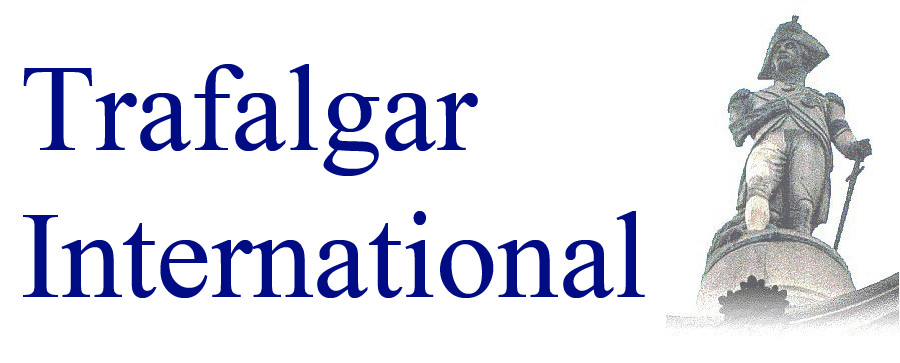In the past, company directors have often felt that they could rely on the company they manage being considered to have a separate legal existence and a limited liability. However, the liability attaching to directors and officers has increased over recent years. And recent legislation and court decisions show an increasing exposure to personal actions against directors. In the United Kingdom the Companies Act 1989 recognised the benefit of directors and officers of a company being protected against claims for “negligence, default, breach of duty and breach of trust” and identified the need of Directors and Officers Liability insurance. Directors, executive and non executive should appreciate the exposures they face and expect their companies to provide protection for them.
Who is an officer
An officer of a company is probably legally defined in your jurisdiction, but broadly speaking is any employee or director of a company who is involved in corporate policy and corporate decision making. Officers are not limited to only company directors.
The problem
Directors and officers may be personally liable to any party that has an interest in the affairs of the company. These parties may include shareholders, prospective shareholders, investors, employees, creditors, customers, suppliers, liquidators, the revenue, regulators, the Government and competitors. An officer may become liable for damages and legal costs and expenses in the event of breach of duty. Such liability is firmly established in the U.S.A. and the United Kingdom with very substantial awards being made and is being increasingly recognised elsewhere in the world. With liability well established and with increasing statutory duties and an increasingly litigious environment, the number of actions against Directors is increasing.
The duties of directors
A director is required to exercise a reasonable degree of skill and diligence. The degree required may vary depending upon the skills and experience reasonably expected of a person occupying the position of the officer and upon the circumstances of each case. Mr. Justice Knox in the case of N J Halls as liquidator re Produce Marketing Consortium Limited (1989) stated that:
- “for the purposes of subsections (2) and (3) of Section 214 of the [UK] Insolvency Act 1986 the facts which a director of a company ought to know or ascertain, the conclusions which he ought to reach and the steps which he ought to take are those which would be known or ascertained, or reached or taken, by a reasonably diligent person having both
- the general knowledge, skill and experience that may reasonably be expected of a person carrying out the same functions as are carried out by that director in relation to the company, and
- the general knowledge, skill and experience that that director has.
- The reference in subsection (4) (of the Act) to the functions carried out in relation to a company by a director of the company includes any functions which he does not carry out but which have been entrusted to him”.
There are also a number of cases directors have been held liable for acquiescence in the deeds of fellow directors.
Reported cases
Accusations of breach of duty by directors and officers can have an adverse effect on any company and the majority of disputes are settled without court actions. This is especially true in Thailand. Nevertheless, such settlements often involve substantial sums and the knowledge of the ability to recover losses is driving greater and greater numbers of directors and officers disputes. The newspapers are regularly filled with headlines relating to disputes over the actions taken by corporate officials. Circumstances which may give rise to a claim Many circumstances may give rise to a dispute between a company officer and other parties including:
- Employment disputes – for example, allegations of wrongful dismissal or discrimination
- Negligent misstatements especially with regard to the company’s future profitability
- Failure to ensure that statutory payments are made – taxation, licenses etc.
- Failure to supervise those to whom responsibility has been delegated
- Agreeing to excessive company borrowing
- Allegation of breach of trade practice
- Acting beyond the scope of authority
- Making unauthorised payments
- Conflict of interests
- Sexual Harassment
- Bad advice
Even though many claims are well defended and no judgement made, the resulting legal expenses can be crippling as legislation in many countries prevents the company assisting the director with his defence. What gives rise to legal proceedings Legal proceedings against directors and officers usually arise following certain events:
- Change of control of a company perhaps following the death of a principal shareholder
- The publication of an official report on the company’s affairs
- Dishonesty of a director or officer
- Dramatic change in share value
- A public offering of shares
- Appointment of a receiver
- Acquisitions or mergers
- Issue of a prospectus
- Change in ownership
- Boardroom disputes
- Poor trading results
Protecting directors and officers So, there is the possibility of a claim, but is it likely to happen in Asia and is insurance really necessary? YES
- Directors can incur personal liability for breach of duty and personal (as opposed to corporate) liability is unlimited
- Protection is provided for the company’s assets in respect of reimbursement of directors and officers
- Directors and officers cannot rely for protection on the separate legal personality of their company
- Privatisation means the public are taking an interest in share ownership and company affairs
- Even in Asia there is increasing tendency for those who have suffered loss to sue
- The high income levels of some directors invites legal action
- Breaches of duty may have civil or criminal consequences
- Lack of knowledge of the law is no defence
- There is an increasing number of claims
- Defence costs can be very significant
- Personal assets are at risk
So, “insurance is necessary, but can you buy it?” The question “Can you buy it?” is different from “Is it for sale?” Certainly, we at Trafalgar can obtain quotations and place cover for you readily if your business is stable and at this stage you know of no incidents which may give rise to a claim. However, legally your company may need to have the authority, in its Articles and Memorandum of Association to arrange and pay for the Insurance. If no such power exists, the directors can still authorise the purchase of insurance but the directors may be personally liable for the cost to the company or – perhaps face a directors and officers claim! This matter needs to be discussed with your legal advisers to ensure authority is provided.
Directors and Officers Liability Premium quotations
Trafalgar would be delighted to obtain premium indications on your behalf. We will require some underwriting information, but for an initial indication, this can be kept to a minimum. For a formal quotation from insurers we will need to obtain:
- The last 2 years’ annual reports
- Any interim reports
- Details of financial activities and any change in financial status
- A completed proposal form
Premiums will depend on the industry your company operates in, the financial turnover and staff numbers, the number of directors, the level of cover you wish to buy and other factors. However, cover is NOT expensive if no claim is foreseen at the time an application is made. For example, a manufacturing company with 12 directors and a turnover of US$ 10 million would probably pay a premium of US$ 2,000.- to US$ 4,000.- per annum for a limit of liability of US$ 500,000.-. Disclaimer Trafalgar are insurance brokers and are experts in arranging insurance programmes for major corporations. We can recommend appropriate cover and obtain best market terms. However, we strongly recommend to you to consult your legal advisers if you are in any way concerned regarding your understanding of the law relating to the liability of your directors and officers.









